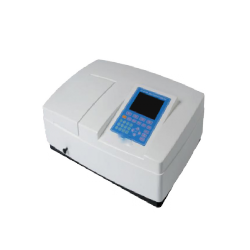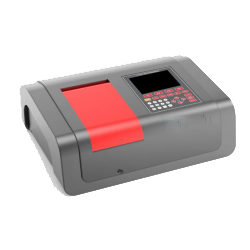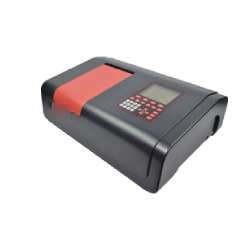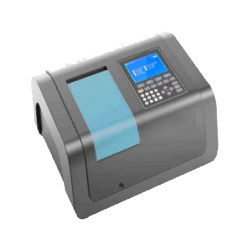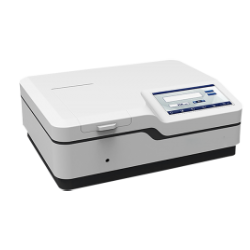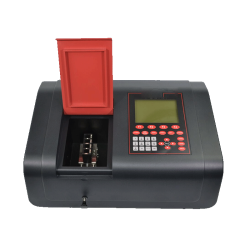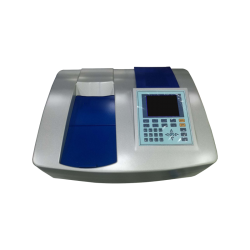Double Beam UV-Vis Spectrophotometer US-B13
The US-B13 Double Beam UV-Vis Spectrophotometer is a compact tabletop device featuring a double beam design with a Silicon photodiode detector and Tungsten and Deuterium lamps as light sources. With a broad wavelength range spanning from 190 nm to 1100 nm, it offers a bandwidth of 1.0 nm and automatic wavelength setting for convenience. Equipped with a 6-inch LCD display and an import source and receiver system, this spectrophotometer offers a variety of measurement methods and ensures high performance and reliability.
| Wavelength Range | 190 to 1100 nm |
| Spectral Bandwidth | 1.0 nm |
| Optical System | Double beam |
| Wavelength Accuracy | ±0.3 nm |
| Wavelength Repeatability | ≤0.1 nm |
| Wavelength Resolution | 0.1 nm |
| Photometric Display Range | -4 to 4 A |
| Photometric Mode | T, A, C, E |
| Photometric Accuracy | ±0.3% τ (0 to 100%τ) ± 0.002 A (0 to 0.5 A) ± 0.003 A (0.5 A to 1 A) |
| Photometric Repeatability | 0.15% τ (0 to 100% τ) ± 0.001 A (0 to 0.5 A) ± 0.0015 A (0.5 A to 1 A) |
| Light Source | Tungsten lamp, Deuterium lamp |
| Stray Light | ≤0.03% τ (220 nm NaI, 340 nm NaNO2) |
| Stability | 0.0005 A/h @500 nm |
| Noise | ± 0.002 A @500 nm |
| Display | 6 inches high brightness Blue LCD display |
| Baseline Flatness | ± 0.001 A |
| Detector | Silicon photodiode |
| Power Supply | AC 220/110 V, 50/60 Hz |
| Dimensions (L×W×H) | 560×450×230 mm |
| Net Weight | 28 kg |
- Compact, tabletop double beam designed UV-Vis spectrophotometer
- Utilizes Silicon photodiode detector, Tungsten, and Deuterium lamps as light source
- Wide wavelength range of 190 nm to 1100 nm with automatic setting
- Features a 6-inch high brightness blue LCD display
- Equipped with import source and receiver system
- Supports various measurement methods including wavelength scan, time scan, multi-wavelength determination, multi-order derivative determination, dual-wavelength, three-wavelength, DNA protein measurements, etc.
- Ensures high performance and reliability with a user-friendly interface
Double Beam UV-Visible Spectrophotometers serve as versatile tools for a myriad of applications spanning various fields. They enable the analysis of band gap, optical coatings, and thin films, facilitating quantitative analyses and kinetics studies. Additionally, these spectrophotometers excel in wavelength scanning and DNA and Protein analysis, making significant contributions to biological research, bio-industry, and pharmaceutical analysis. Moreover, they play pivotal roles in teaching and research endeavors, environmental protection initiatives, food hygiene assessments, clinical examinations, and health and epidemic prevention efforts. With their broad utility, these instruments empower scientists and researchers across diverse disciplines to explore, innovate, and address challenges effectively.

